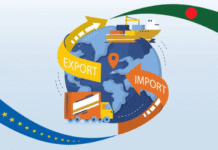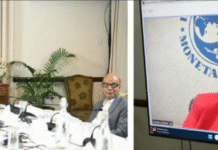Leading food policy experts, policymakers, and legislatures from five South Asian countries, including Bangladesh, are going to meet in Kathmandu on July 30-31 to discuss legal ways and solutions to fight food insecurity in the region.
The South Asia Watch on Trade, Economics and Environment (SAWTEE) in partnership with Oxfam and its biggest-ever global campaign GROW will organise the meeting on the food insecurity in the region, where over 304 million malnourished people live, accounting for the world’s majority, said an Oxfam press release on Sunday.
As part of its ongoing regional programme on the issue, the agencies also developed a regional synthesis report on legislative measures relating to food security in South Asia which will be launched on July 31.
During the two-day regional consultation, ‘Food-related Legislation in South Asia’, the participants from Bangladesh, India, Nepal, Pakistan, and Sri Lanka will discuss around findings of studies on food-related legislation in each of the country.
Information Minister Hasanul Haq Inu will attend the consultation along with other members of parliaments, politicians, experts, government officials and practitioners from five countries, who will assess the works undertaken under the programme and provide necessary inputs to fill the missing gaps.
“The region is at a true crossroad. With volatile food prices, erratic weather pattern, sluggish global economy, and widening gap between the rich and the poor, all the progresses South Asia has enjoyed in the past two decades could be reversed unless it confronts this region-wide hunger with a sense of urgency,” said Lillian Mercado, Deputy Regional Director of Oxfam in Asia.
Dr Ratnakar Adhikari of SAWTEE said the report has identified best practices in food security legislation in the region as well as highlights the challenges and loopholes in the existing measures.
“Broadly, we’ve four categories of factors that cause the region’s food insecurity. They’re related to production/productivity, consumption/distribution, environment, and cooperation,” he said.
Dr Ratnakar said: “These will be the focus of the consultation, along with the recommendations. We hope to come up with agreed measures and action points that are as practical and adaptable as much as possible for all the South Asian countries.”
Source: UNBConnect










